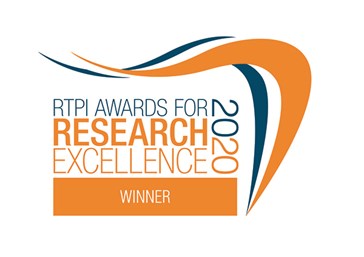Telecommuting and other trips: an English case study
Dr Hannah Budnitz
MRTPI
(University of Oxford, School of Geography and the Environment, Transport Studies Unit)
Co-authored by:
Dr Emmanouil Tranos (University of Bristol)
Prof Lee Chapman (University of Birmingham)
 Research Description
Research Description
This research proposes that the sustainability of telecommuters’ travel patterns is more dependent upon the accessibility of non-work activities than on the distance to the workplace for less frequent commuting journeys. Using the National Travel Survey for England 2009-2016, the travel of those who identify themselves as working from home at least once a week are compared to other working adults by measuring and modelling the number and purpose of trips within a week's travel diary, independent of distance or mode. We conclude that by proactively addressing the accessibility of non-work destinations, planners can help telecommuters travel sustainably.
Full Entry Title
Budnitz, H., Tranos, E. and Chapman, L. (2020) 'Telecommuting and other trips: an English case study'. Journal of Transport Geography, 85. 102713.
The Judges Said...
 The judges considered that this very relevant and timely piece of research into the impact of telecommuting has the potential to make a vital contribution to policy-making for the post-COVID era. Its counter-intuitive findings concluded that the impact of online access to work, which allows for living in more dispersed locations, results in more unsustainable transport patterns, including increased car dependency as well as reduced physical activity. It concludes that the location of housing and workplaces should be planned in a more sustainable manner, particularly taking into consideration the accessibility of non-work destinations. The work carried out was thorough and robust, offering the potential for further research into sustainable land-use and transport planning, with wider application internationally.
The judges considered that this very relevant and timely piece of research into the impact of telecommuting has the potential to make a vital contribution to policy-making for the post-COVID era. Its counter-intuitive findings concluded that the impact of online access to work, which allows for living in more dispersed locations, results in more unsustainable transport patterns, including increased car dependency as well as reduced physical activity. It concludes that the location of housing and workplaces should be planned in a more sustainable manner, particularly taking into consideration the accessibility of non-work destinations. The work carried out was thorough and robust, offering the potential for further research into sustainable land-use and transport planning, with wider application internationally.
